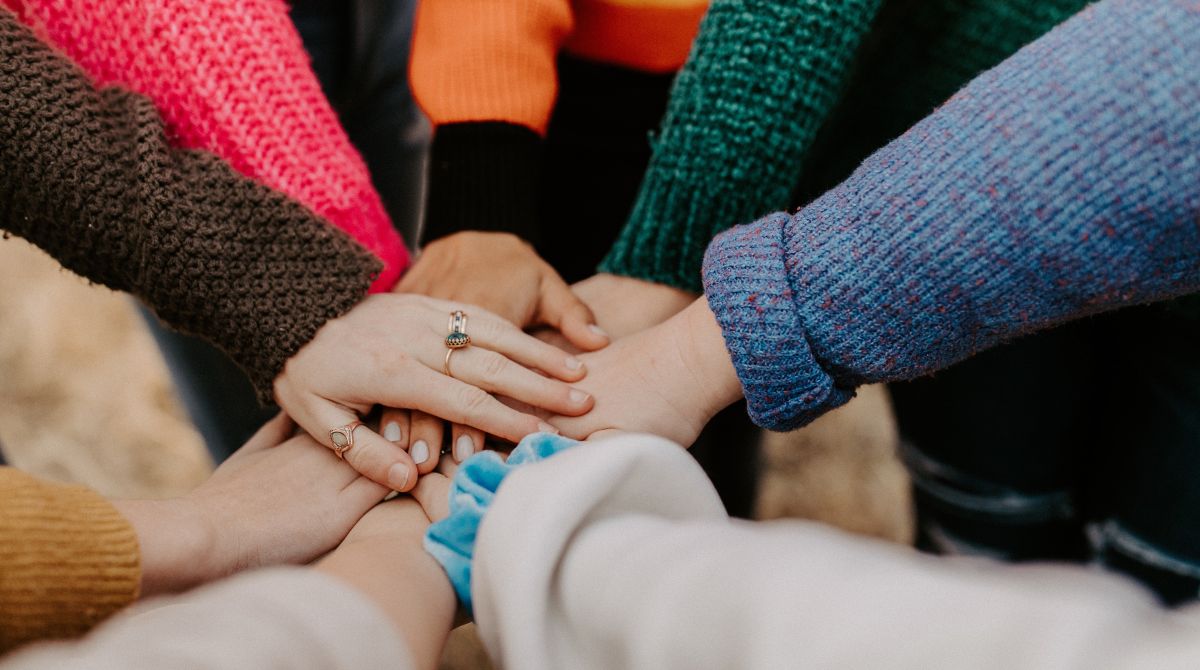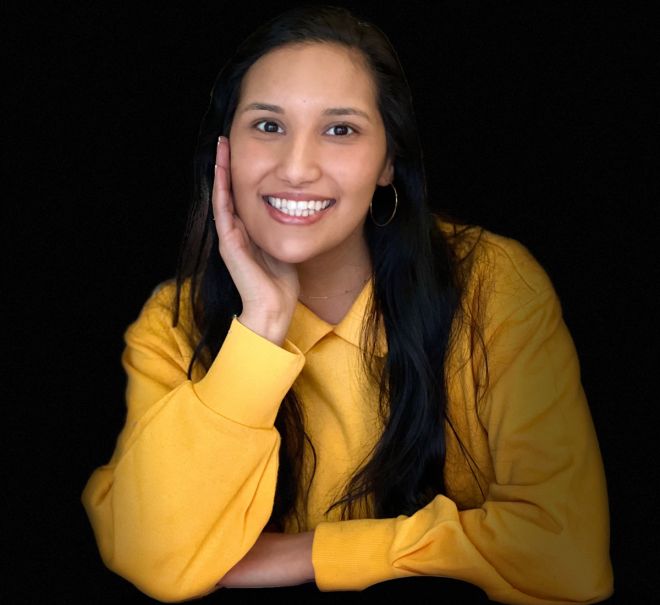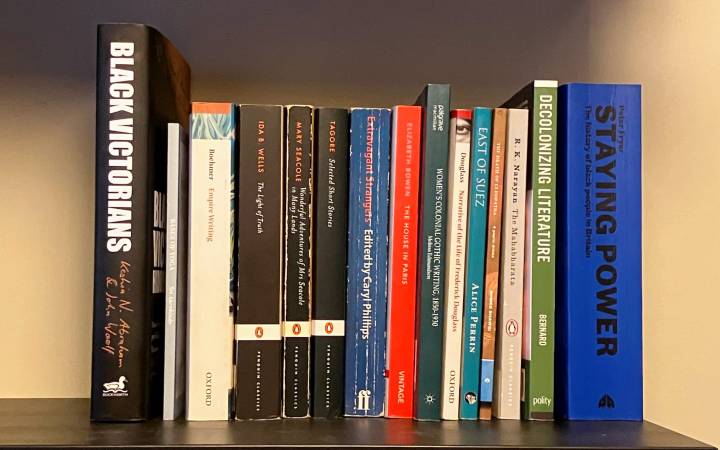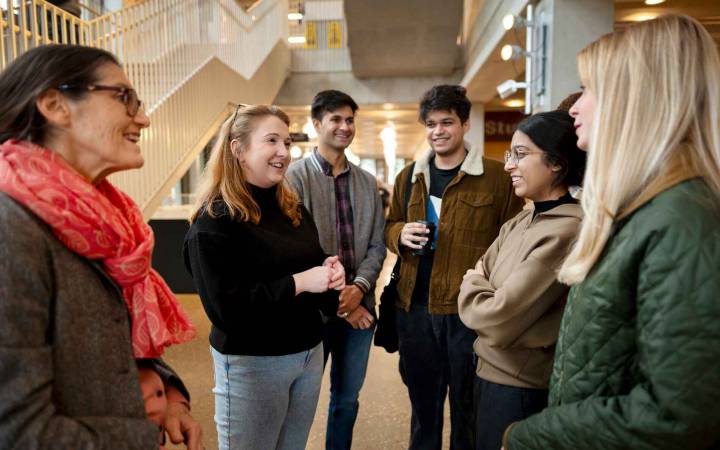World Social Work Day: Kingston University postgraduate student shares views on how respecting diversity and embracing change can drive social action
Posted Tuesday 21 March 2023
 Masters in Social Work student at Kingston University Diana Laura Gerardo Correa has discussed how respecting diversity through joint social action can drive real change in society.
Masters in Social Work student at Kingston University Diana Laura Gerardo Correa has discussed how respecting diversity through joint social action can drive real change in society.
To mark World Social Work Day on 21 March, Kingston University Master in Social Work student Diana Laura Gerardo Correa has shared her thoughts in response to this year's theme of respecting diversity through joint social action. In this blog, she draws on experiences from her studies and reflects on how society could benefit from establishing more a inclusive curriculum in schools.
Blush pink and lavender graced the skies in Kingston while I read the Spanish translation of the promotional poster for the 2023 World Social Work Day. When I saw this year's theme, I could feel the intersectionality of my roots tugging at the thought of being able to represent them. I knew I had many people to remember— including but not limited to my hard-working Mexican ancestors, the strong women and LGBT+ individuals in history who paved the way for my rights, and the incredible social worker who advocated for me as an adolescent and has still continued to root for me several years later after I decided I would take the same path as her.
I am a Mexican-American woman pursuing my social work dream approximately 5,162 miles away from my hometown of El Paso, Texas, a vibrant and friendly city that sits on the border of the U.S. and Mexico. Perhaps some questions have arisen (they certainly did for some friends and family of mine), such as why I would commit to studying so far from home and paying overseas tuition just to earn what some would potentially consider breadcrumbs in a growing cost-of-living crisis.
Firstly, I had the opportunity to earn an internationally recognised education if I completed two years of studying and working in a practice placement. Secondly, I wanted to learn more about the world and the unique challenges other populations face so that I could become a rounded and informed public servant for them. Diana Laura Gerardo Correa decided to pursue her dream of getting into social work by moving to the UK to study.
Diana Laura Gerardo Correa decided to pursue her dream of getting into social work by moving to the UK to study.
Thankfully, my time at Kingston University has been successful so far. In the first year alone, I have been pushed to challenge my thinking and to actively participate in well-designed class discussions. I have learned essential frameworks and legislations that I will be able to apply in practice and I have been taught by passionate professors who do not need to recite the values expected within social work for us to absorb them because they already exhibit them in their daily commitment to aid us in our learning.
"So now what?" is exactly what I imagine one of my former module leaders saying. Now, I have assignments, placement interviews, a weekly teen-mentoring project, my loved ones, and my own gradually healing self to focus on. I have yet to decide the population I would like to work with once I graduate, but thankfully, I have time and an open mind that I believe will show me along the way.
Being in this career excites me because I will get to learn how to empower others as a social worker the way I was empowered when I was younger. I have witnessed firsthand that a person's differences, such as their nationality or their sexuality, could lead them to be excluded or treated differently by others, even by those who are closest to you. I've grown to understand why influential leaders sought to make changes to the world we live in and the way it views diversity. This is why I now believe there is an underestimated art and power in embracing diversity. And I believe that respecting it, as well as learning how to wield it to our benefit, will unlock an incredible ability to build the bridges we so urgently need in society.
Because of differences in things like thought and ability, we have been able to witness the incredible impacts individuals like Greta Thunberg, Temple Grandin, Stephen Hawking, Cesar Chavez, and Rosa Parks have made on the lives of so many others. Nonetheless, in an ever-evolving world, there is always work to be done. So, the IFSW's World Social Work Day 2023 has called for joint social action. One well-intentioned person can try to have an impact, but perhaps an opportunity to enact lasting change lies in the younger generations learning to work together. Society could benefit from establishing more inclusive curriculums in schools that portray global challenges, historical events, and perspectives. These could help instil a meaningful understanding of anti-oppressive practices and drive human connection.
Growing up, I would hear the following: "Just because something is different, it doesn't mean it's bad." People are often afraid of change or they shy away from something they feel might be irrelevant to them. Thus, teaching them to develop their courage, confidence, and ethics early on can enable them to think in a way that advances not just themselves but everyone around them. Working together in aspects like this can develop a future truly fit for us all. Diversity is both valuable and powerful, so with this in mind, as social workers, we must prepare to adapt our methodologies to the unique and evolving world around us.
Contact us
General enquiries:
Journalists only:
- Communications team
Tel: +44 (0)20 8417 3034
Email us



